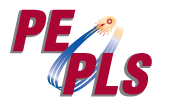Companies offering, practicing, or performing engineering or land surveying services in North Dakota need to have a Certificate of Commercial Practice (CoCP). This includes sole proprietors. If you are practicing as an individual under your own name and not a trade name, you do not need a Certificate of Commercial Practice.
Companies must employ a North Dakota licensed professional in the profession(s) they desire to be licensed, prior to applying for a company license.
Companies must obtain a Certificate of Authority (COA) from the North Dakota Secretary of State’s Office , prior to applying for a company license. Companies whose COA is “Not in Good Standing” with the ND Secretary of State’s Office will not be allowed to be licensed or to renew their license until they are in ” Good Standing.”
The below information pertains to individuals and companies and illustrates what may require a company to become licensed.
“Practice of engineering and practice of professional engineering” means any service or creative work, the adequate performance of which requires engineering education,
training, and experience in the application of special knowledge of the mathematical, physical, and engineering sciences to such services or creative work as consultation, investigation, evaluation, planning and design of engineering works and systems, engineering teaching of advanced engineering subjects or courses related thereto, engineering surveys, and the inspection of construction for the purpose of assuring compliance with drawings and specifications; any of which embraces such service or work, either public or private, in connection with any utilities, structures, buildings, machines, equipment, processes, work systems, or projects as are incidental to the practice of engineering. A person must be construed to practice or offer to practice engineering if the person practices any branch of the profession of engineering; if the person, by verbal claim, sign, advertisement, letterhead, card, or in any other way
represents that the person is an engineer and is able to practice engineering in this state if the person through the use of some other title implies that the person is an engineer or that the person is registered under this chapter; or if the person holds out as able to perform, or does perform any engineering service or work or any other service that is recognized as engineering, for a valuable consideration for others, including the public at large.
“Practice of land surveying”:
a. Means making land boundary determinations by providing or offering to provide professional services using such sciences as mathematics, geodesy, and photogrammetry and involving the making of geometric measurements and gathering related information pertaining to the physical or legal features of the earth; improvements on the earth; and improvements on the space above, on, or below the earth and providing, utilizing, or developing the same into land survey products such as graphics, data, maps, plans, reports, descriptions, or projects. As used in this subsection, professional services include acts of consultation, investigation, testimony evaluation, expert technical testimony, planning,
mapping, assembling, and interpreting gathered measurements and information related to any one or more of the following:
(1) Determining by measurement the configuration or contour of the earth’s surface or the position of fixed objects on the earth’s surface;
(2) Determining by performing geodetic land surveys the size and shape of the earth or the position of any point on the earth;
(3) Locating, relocating, establishing, re-establishing, or retracing property lines or boundaries of any tract of land, road, right of way, or easement;
(4) Making any land survey for the division, subdivision, or consolidation of any tract of land;
(5) Locating or laying out alignments, positions, or elevations for the construction of fixed works;
(6) Determining by the use of principles of land surveying the position for any survey monument, boundary or non-boundary, or reference point and establishing or replacing any such monument or reference point; and
(7) Creating, preparing, or modifying electronic or computerized or other data for the purpose of making land boundary determinations relative to the performance of the activities in paragraphs 1 through 6.
b. Includes:
(1) Engaging in land surveying;
(2) By verbal claim, sign, advertisement, letterhead, card, or any other way representing to a person to be a professional land surveyor;
(3) Through the use of some other title implying to be a professional land surveyor or that the person is licensed or authorized under this chapter; and
(4) Holding out as able to perform or performing any land surveying service or work or any other service designated by the practitioner which is recognized as land surveying.
The list of ND licensed employees must be updated as changes occur. Companies have 30 days to notify the Board office of changes that occur between renewals.
Corporate Directors/Officers do not need to be updated, after initial licensure.
Disciplinary actions taken by other jurisdictions must be reported to the Board office within 30 days of the final order/ruling.
Company licenses expire on December 31st of every year.


